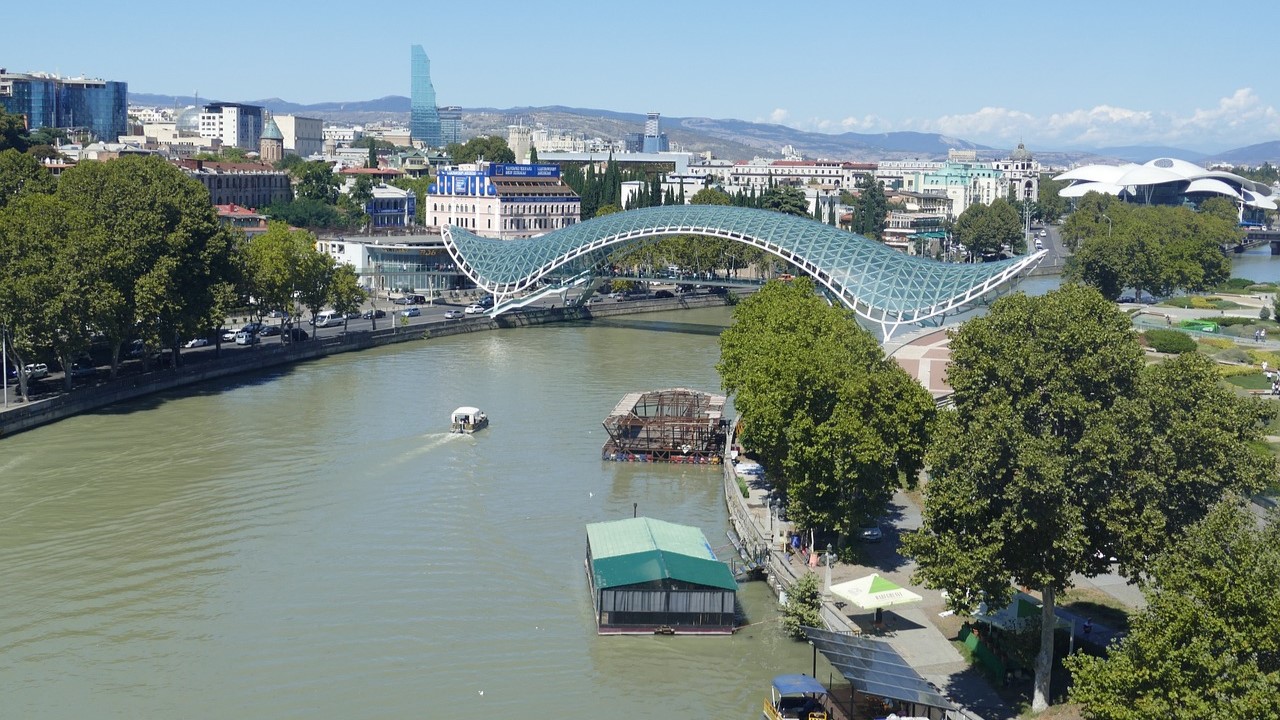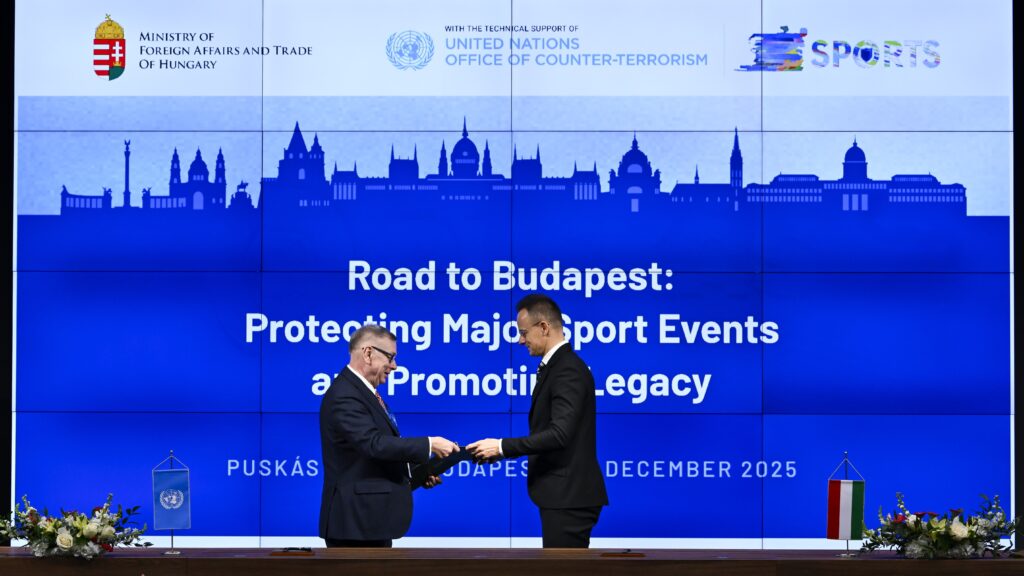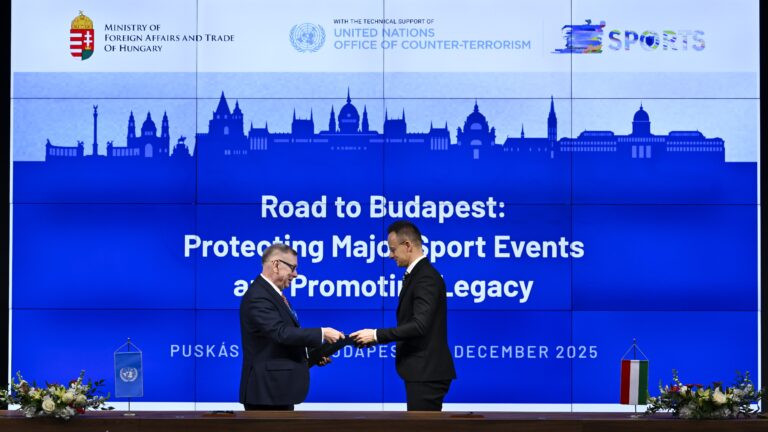Hungary appreciates Georgia’s efforts to join the European Union (EU) and has pledged to support its integration during the Hungarian presidency of the Council of the EU.
One of the priority areas of the Hungarian presidency to the Council of the EU is the ‘consistent and merit-based enlargement policy,’ primarily focusing on the Western Balkans region. This merit-based approach includes all candidate countries wishing to progress in their integration into the EU.
On 19 July 2024 Georgian Foreign Minister, Ilia Darchiashvili, visited Budapest to meet with his counterpart, Péter Szijjártó. During the meeting the Hungarian Foreign Minister praised the ‘patriotic’ government of Georgia and mentioned that the EU should be ‘absolutely happy’ that Georgia wishes to join the bloc. The Hungarian counterpart described the recent actions of the Georgian government as protective of national interests. This includes the passing of the controversial law on the transparency of foreign influence, dubbed the ‘foreign agent law’, which caused a significant setback in the EU integration process, and the law on family values and protection of minors, aimed at protecting the traditional family model. Hungary has been very clear in its aim to promote conservative values and the importance of the traditional family model. Hence, policies in this direction are appreciated by the Hungarian side.
Hungary declared its support for Georgia’s membership efforts shortly after the EU’s decision to halt the accession process
following the adoption of the foreign agent law by the Tbilisi parliament.
Following the withdrawal of the first draft of the law in March 2023, due to strong protests, the new draft was presented in the Georgian parliament in April 2024 and subsequently adopted on 14 May 2024. This move has been strongly condemned by the opposition in the country, and has met with the dissatisfaction of a large portion of the population with the new law. The major reason for such dissatisfaction is that the new legislation requires the registration of media and non-governmental organizations (NGOs) as ‘pursuing the interests of a foreign power’ if more than 20 per cent of their funding comes from abroad.
Given that a significant number of Georgian NGOs and civil society organizations (CSOs) benefit from EU funding, the new law has caused protests from Georgian NGOs, CSOs, and in Brussels. But it is important to mention that this law project was adopted and its draft presented during a period when the EU was allocating a growing amount of funding to Georgian governmental agencies. Between 2019 to 2024 EU funding to Georgian ministries and institutions amounted to 517 million euros, which is roughly eleven times more than the amount allocated for NGOs and CSOs. This includes the allocation of 111.55 million euros to the Ministry of Regional Development and Infrastructure/Local Government, 101.40 million euros to the Ministry of Finance, 62.75 million euros to the Ministry of Defence, and 57 million euros to the Ministry of Environment and Agriculture and departments.
The EU granted candidate status to the South Caucasian country on 14 December 2023. The accession process was halted shortly after the adoption of the law on foreign agents. This was announced by the EU’s special envoy, Paweł Herczyński, in July, during his speech at an event on EU enlargement in Tbilisi. He also announced the halting of 30 million euros in funding, due to concerns over the limitation of LGBTQ+ rights and the spread of alleged Moscow-led propaganda resulting from the adoption of the new law.
Georgia is an important partner for Hungary, given its strategic location in the South Caucasus,
which allows it to be an efficient transit country for trade between Hungary, Azerbaijan, and Central Asian countries.
This is the aspect that the Hungarian Foreign Minister has repeatedly praised during meetings with his Georgian counterpart. Strategically located in the South Caucasus, Georgia links Azerbaijan with the Black Sea and Türkiye. While a potential Zangezur Corridor passing through Armenia, in the case of a successful peace treaty, would shift some goods shipments to Armenia, Georgia will still remain the major route for both green and fossil fuel energy from Azerbaijan and Central Asia to the EU.
Péter Szijjártó has also highlighted the importance of Georgia in the green transition of Central and Eastern European countries. This is due to the construction of the longest high-voltage electric cable from Azerbaijan, passing through Georgia, the Black Sea, and Romania, eventually reaching Hungary. It is important to note that this cable line can also potentially connect to the new cable line being built from Uzbekistan and Kazakhstan through the Caspian Sea to Azerbaijan. This could become a significant driver for the green transition of the region, given the richness of Central Asia and Azerbaijan in potential renewable energy resources.
The Hungarian Minister also underscored the importance of continuing support for the positive trend in trade between Georgia and Hungary, highlighting that bilateral trade turnover has increased two and a half times since 2010. He mentioned the positive development of Wizz Air becoming a market leader in air traffic in Georgia.
Read more on Hungary–Georgia relations:







